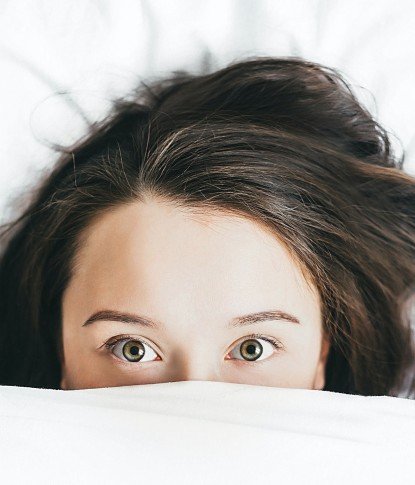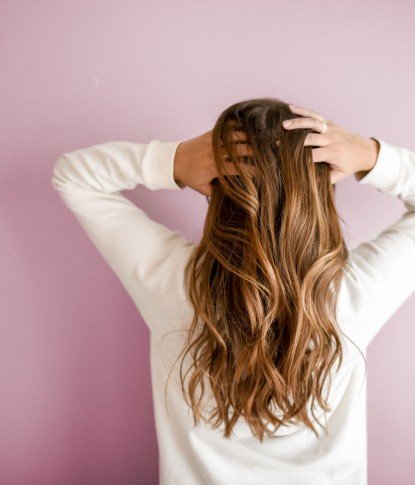
Natural ways to improve sleep
Whether your poor sleep is a temporary spell or a more persistent issue, there are plenty of gentle techniques and natural tools that can help your body and mind wind down.
🥗 1. Sleep-supportive foods
Some foods contain tryptophan, an amino acid that helps produce serotonin and melatonin, which support sleep. Include these in your evening meal:
-
Brown rice or quinoa
-
Turkey or eggs
-
Bananas
-
Nuts and seeds
-
Sour cherries (or tart cherry juice)
Eating a light, balanced dinner a few hours before bed (not too heavy or spicy) can also help your digestive system stay calm.
🌿 2. Herbal teas and remedies
Plant-based herbs have long been used to support restful sleep. Try sipping on a warm herbal tea 30–60 minutes before bed.
Soothing options include:
-
Chamomile is gentle and calming
-
Valerian root may help reduce sleep latency
-
Passionflower promotes relaxation
-
Hops has a mild sedative effect
💡 Many bedtime blends combine several of these herbs. Choose caffeine-free options only.
💆 3. Acupressure for sleep
In Traditional Chinese Medicine, there’s a point called “Joyful Sleep” located about a thumb’s width below your inner ankle bone.
Try this before bed:
-
Sit or lie comfortably
-
Find the indentation between the two tendons
-
Press firmly with your thumb or index finger for up to a minute on each foot
You can also pair this with slow, deep breathing to enhance the calming effect.
🌸 4. Aromatherapy & essential oils
You’ve probably heard of lavender, and it’s still a go-to. But if you’re not a fan, there are plenty of other sleep-friendly scents that calm the nervous system:
-
Bergamot
-
Frankincense
-
Jasmine
-
Sandalwood
-
Ylang ylang
Try adding a few drops to a diffuser, your pillow spray, or even your bath before bed.
🧠 5. Hypnotherapy for sleep anxiety
If racing thoughts, overthinking, or night time anxiety are keeping you up, hypnotherapy may help. It works by training your mind to shift from stress to calm, and from “I won’t sleep again” to “I know how to relax.”
Today’s apps make it more accessible than ever, or you can work with a certified sleep hypnotherapist.
🕯️ 6. Homoeopathy (If You Prefer Natural Medicine)
Some homoeopathic remedies people turn to for sleep support include:
-
Calc phos – for lying awake for hours without dozing off
-
Kali phos – when you’re overtired but too wired to sleep
-
Coffea – helpful when your mind just won’t switch off
Speak to a trained homoeopath for personalised guidance.
💐 7. Bach flower remedies for emotional restlessness
If your sleep issues are driven by emotional overload, flower remedies may offer gentle support:
-
Mimulus – for situational stress (like job interviews or exams)
-
Vervain – for an overactive mind that just won’t switch off
-
Elm – for feeling overwhelmed and emotionally drained
When to get support for sleep issues
If your sleep struggles have lasted several weeks or longer, or you’re consistently feeling exhausted during the day, it could be insomnia. Your GP can help identify the cause and recommend options, but sleeping pills are usually only prescribed in severe cases or when natural approaches haven’t worked.
Final thoughts
Improving sleep doesn’t always mean big changes. Often, it’s about creating the right bedtime rituals, calming the nervous system, and supporting your body’s natural ability to rest.
🛌 Whether it’s adding calming foods to your dinner, brewing a bedtime tea, or trying a relaxation method like hypnotherapy, small shifts can lead to deeper sleep over time.
FAQs: Natural sleep remedies
What are the best natural remedies to help me sleep?
Some of the most popular natural sleep aids include herbal teas like chamomile or valerian, magnesium supplements, calming essential oils like lavender or bergamot, and relaxation techniques such as breathing exercises or hypnotherapy.
Can food really help me sleep better?
Yes, certain foods contain tryptophan, magnesium, or melatonin, which can support better sleep. These include turkey, bananas, oats, nuts, seeds, and tart cherries. Eating a balanced dinner and avoiding heavy, spicy, or sugary foods before bed can also make a difference.
Does aromatherapy actually work for sleep?
Aromatherapy can help calm the nervous system and promote relaxation. Scents like lavender, sandalwood, and frankincense are shown to reduce stress and support deeper sleep. Use a diffuser or pillow spray before bed for the best effect.
What’s the best herbal tea for sleep?
Chamomile is a classic, but other great options include valerian root, lemon balm, passionflower, and bedtime blends. Always check they’re caffeine-free and drink 30–60 minutes before bed.
When should I see a doctor about sleep problems?
If you’ve had trouble sleeping for several weeks, wake up tired every day, or find your sleep issues are affecting your mental or physical health, it’s worth speaking to your GP. They can check for underlying causes and guide you toward treatment options.
Can stress really cause insomnia?
Yes, stress and anxiety are some of the biggest contributors to sleep issues. That’s why relaxation tools like hypnotherapy, journaling, breathing exercises, and apps like Headspace can be so effective in improving sleep naturally.




